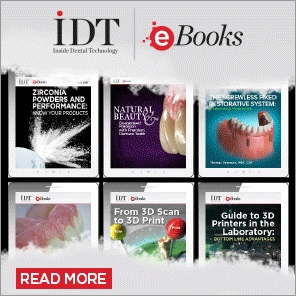OXNARD, Calif., June 16, 2014 /PRNewswire/ -- Well-known dentists, hygienists, and dental assistants in the United States have come together, with support from DUX Dental, to form a new coalition called Support Clean Dentistry. The coalition's goal is to promote infection control and prevention in the dental environment, make the concept of infection control more understandable for patients, and encourage communication between dental patients and professionals. Support Clean Dentistry recently introduced its first social media campaign with the release of three humorous web videos created to generate awareness and get dental professionals and patients talking to each other. The videos are available on www.SupportCleanDentistry.com and the coalition's social media sites Twitter, Facebook, and Instagram.
"During the last year 'dirty dentists' have been in the news more and more – when in fact these cases are rare exceptions to the care most professionals deliver. The advisory board members came together with the support of DUX Dental to think of ways we could get patients and dental professionals talking about infection control and keeping it clean at the dentist office," said Dr. Sheri B. Doniger, Support Clean Dentistry advisory board member. "The outcome was relatable, shareable, funny videos that we hope will be a conversation starter between patients and their dental care providers."
The "Cold-Hearted Bib Chain" campaign is a multi-faceted social media campaign that includes three web videos, animated gifs and other visuals optimized for online sharing. In a funny and exaggerated way, the video series portrays interactions between patients and a hygienist as the hygienist tries to attach a dental napkin around the patient's neck using a traditional bib chain. Each character, played by improvisational comedians, highlights emotions commonly seen among dental patients and the somewhat challenging situations dental professionals have to handle on a daily basis. The reactions range from sheer fear, to relentless squirming, to the sharing of too much information.
"The message of the video is to encourage patients to ask their dentist for a disposable bib clip to avoid the cross contamination of germs," says advisory board member Noel Kelsch, RDHAP. "But the point is that the patient can, and should, ask the dentist or hygienist about anything that concerns them. Whether you want to request they change gloves after touching a counter or to ask about how something was cleaned, the patient should feel empowered to talk about it."
Support Clean Dentistry is currently made up of five advisory board members: Shannon Pace Brinker, CDA, Sheri B. Doniger, DDS, Noel Brandon Kelsch, RDHAP, Frank J. Milnar, DDS, AAACD, and Kara Vavrosky, RDH. The mission of the coalition is to:
- translate dental care standards into easy to understand information for patients.
- teach patients about infection control standards and what to expect during a dental visit.
- empower dental patients to communicate with their dental care professional and express their expectations about their dental visit.
- encourage dental professionals to outline and explain the infection prevention and control practices they use and invite the patient to ask questions and participate in the process.
"Infection control" practices are the protocols medical professionals undertake to prevent potential infection and control of infection in the rare cases when it arises. Infection control includes procedures such as washing hands, wearing gloves, using disposable supplies and disinfecting reusable ones properly.
About Support Clean Dentistry
Support Clean Dentistry is a coalition of dentists and hygienists who have a common interest in promoting infection control and prevention in the dental environment and to encourage communication between dental patients and professionals. Support Clean Dentistry provides public education opportunities, best practice sharing and up-to-date information to inform the public and help dental professionals continually provide excellent patient care. DUX Dental currently supports the coalition's operational costs yet all advisory board members volunteer their time. For more information visit https://www.SupportCleanDentistry.com.








